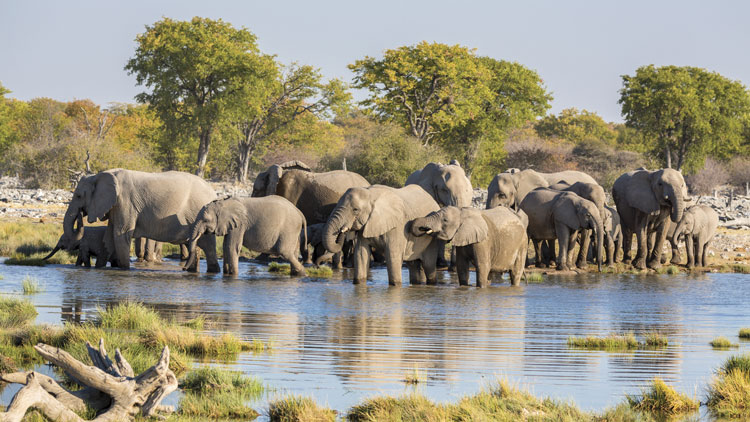Whistleblowing for Wildlife: Advocates hope rewards prompt poaching reports

Shutterstock
The word whistleblower evokes names such as Edward Snowden, Daniel Ellsberg and Deep Throat. But the reach of today’s whistleblower has begun to extend beyond the political jungle and into the animal kingdom through the Global Wildlife Whistleblower Program.
“The wildlife community had never been involved in whistleblower protection cases, and the whistleblower community had never been involved in wildlife protection cases. We blended the two,” says attorney Stephen Kohn, a partner with Kohn, Kohn & Colapinto in Washington, D.C., who founded the program.
The program has a referral network of 54 attorneys who, so far, are pursuing 16 cases that involve crimes against wildlife. Wildlife crimes have a broad definition that covers plants and animals—everything from illegal fishing to prohibited lumber imports.
Several current cases target the black market for ivory from poached elephants, an issue highlighted in a 2016 report by Interpol and the United Nations Environment Programme. The report found that in Tanzania alone, poachers kill about 3,000 elephants every year, generating a street value for ivory of more than $10 million.
Kohn saw an opportunity to utilize existing laws to provide relief to those in countries that lack a rule of law, yet are at the center of an extinction crisis. It was also a chance to develop a niche practice area.
Kohn’s program drew attention this year when it won a top award in the Wildlife Crime Tech Challenge, a competition run by the U.S. Agency for International Development.
The whistleblower program’s online Secure Internet Wildlife Crime Reporting System allows people to confidentially report violations and connects them with attorneys who help them apply for federal rewards.
Having handled whistleblower protection cases since 1984, Kohn thought federal criminal and civil statutes such as the False Claims Act and the Foreign Corrupt Practices Act could apply to wildlife whistleblower cases.
In addition, five major anti-trafficking laws mandate whistleblower rewards: the Lacey Act, the Rhinoceros and Tiger Conservation Act, the Antarctic Conservation Act, the Endangered Species Act and the Wild Bird Conservation Act. But Kohn says there isn’t a uniform method to effectively report wildlife crime internationally.
Kohn realized the best way to combat the problem was to “incentivize it by making it more profitable to turn in a poacher than to help a poacher.”
“Once you post rewards, people start reporting.”
This article was published in the December 2017 issue of the ABA Journal with the title "Whistleblowing for Wildlife: Advocates hope rewards prompt reporting of poaching and other crimes."



